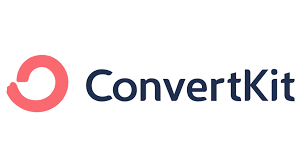In the vast ocean of email marketing, two ships are sailing prominently in 2024 – ConvertKit and Zoho Campaigns. Both are vying for the attention of businesses and marketers, each boasting unique features and capabilities. But which one is the right vessel for your marketing journey? In this detailed exploration, we’ll dissect these platforms, comparing their features, usability, pricing, and much more, all in a simple, engaging conversation. Dive in as we unfold the tale of ConvertKit versus Zoho Campaigns to determine the best email marketing tool for 2024.
| ConvertKit | Zoho Campaigns |
|---|---|
 |  |
| G2 Score – 4.4 out of 5 stars | G2 Score – 4.2 out of 5 stars |
| TrustRadius Score – 8.8 out of 10 | TrustRadius Score – 7.9 out of 10 |
User Experience: The First Port of Call
The user experience (UX) of an email marketing tool can be likened to the first impression you have when walking into a new restaurant. It sets the tone for your entire journey. Let’s compare the UX of ConvertKit and Zoho Campaigns.
ConvertKit: Simplicity and Intuitiveness
ConvertKit welcomes you with an interface that’s akin to a cozy, well-lit café. It’s inviting and straightforward, making it a hit with entrepreneurs, bloggers, and small businesses.
Right from the start, ConvertKit offers an intuitive dashboard that’s easy to navigate. Setting up campaigns, creating sign-up forms, or segmenting your audience is a breeze. The platform’s focus on a clutter-free experience makes it ideal for those who are either new to email marketing or prefer simplicity over complexity.
Zoho Campaigns: Feature-Rich and Detailed
Zoho Campaigns, in contrast, is like walking into a high-end, multi-cuisine restaurant. There are more options and functionalities, catering to a wide range of needs.
For those who relish detail and extensive features, Zoho Campaigns is a treasure trove. Its dashboard offers numerous functionalities from the get-go, including advanced automation options, integration capabilities, and detailed analytics. However, this abundance of features might initially feel overwhelming to new users or those who prefer a more straightforward approach.
Customization Capabilities: Crafting Your Journey
ConvertKit’s customization abilities are about giving you the tools to create a personalized experience without overcomplicating things. Its email editor is user-friendly, allowing for enough flexibility to ensure your emails resonate with your brand and message.
Zoho Campaigns steps up the game with more extensive customization options. It offers a variety of templates and deeper customization capabilities, ideal for businesses that need to create more intricate, brand-specific emails.
Decision Time: Choosing the Right UX
In terms of user experience, both ConvertKit and Zoho Campaigns have their unique strengths. ConvertKit is the go-to platform for simplicity and ease of use, making it perfect for those who are new to email marketing or prefer a straightforward approach. Zoho Campaigns, with its wide array of features and customization options, is more suited for businesses looking for a robust, feature-rich email marketing solution.
Email Automation: Crafting Effective Campaigns with Ease
The heart of any email marketing tool lies in its automation capabilities. It’s like having a skilled sous-chef who prepares parts of your meal, ensuring consistency and saving you time. Let’s delve into how ConvertKit and Zoho Campaigns handle email automation.
ConvertKit: Streamlining Email Automation
ConvertKit approaches automation with a philosophy that revolves around simplicity and effectiveness, much like a straightforward recipe that delivers delightful results without the need for complex procedures.
With ConvertKit’s automation features, you can effortlessly set up automated email sequences, welcome emails, and nurture campaigns. The platform’s visual automation builder is intuitive, making it easy to craft your email journeys with a simple, drag-and-drop interface. It’s particularly beneficial for those who value efficiency and straightforward tools in their marketing strategy.
Zoho Campaigns: Advanced Automation for Detailed Campaigns
Zoho Campaigns, in contrast, offers a more detailed and nuanced approach to automation. It’s akin to a gourmet kitchen equipped with advanced tools – great for those who love to fine-tune every aspect of their recipes.
Zoho Campaigns provides a comprehensive set of automation options, including detailed segmentation, behavioral triggers, and multi-step workflows. This allows for more intricate and targeted email sequences, catering to businesses that require a deeper level of customization and control over their email marketing efforts.
Personalization: Making Each Email Count
ConvertKit shines in personalizing email experiences. Its platform allows you to easily segment your audience and tailor content to different groups, ensuring that your emails resonate more personally with your subscribers.
Zoho Campaigns takes personalization a step further, offering advanced segmentation capabilities based on user behavior, preferences, and even predictive analytics. This level of detail is particularly useful for businesses looking to create highly targeted and personalized email campaigns.
Automation Efficiency: Balancing Simplicity and Sophistication
ConvertKit’s automation features strike a balance between simplicity and functionality, making it easy to set up effective email campaigns without getting lost in complexities.
Zoho Campaigns’ automation capabilities, while more complex, offer a higher degree of flexibility and customization. They cater to businesses that have specific needs for intricate and highly targeted email marketing strategies.
Choosing the Right Automation Tool
Deciding between ConvertKit and Zoho Campaigns for email automation depends on your business’s needs and how much complexity you’re comfortable managing. ConvertKit is ideal if you’re looking for a straightforward, user-friendly automation tool that simplifies your email marketing efforts. It’s particularly suited for small businesses, bloggers, and those new to email marketing.
Zoho Campaigns, with its advanced automation features, is better for users who need detailed, customizable automation capabilities. It’s a strong choice for medium to large businesses or those with specific requirements for their email marketing campaigns.
Analytics and Reporting: Gaining Insights into Your Campaigns
Much like a chef needs feedback to refine their recipes, effective email marketing relies on comprehensive analytics and reporting. Let’s dive into how ConvertKit and Zoho Campaigns measure up in providing these crucial insights.
ConvertKit: Focused and User-Friendly Analytics
ConvertKit treats its analytics like a café that serves up just what you need to know about your favorite brew. It’s straightforward, giving you essential insights without overwhelming you.
With ConvertKit, you get access to key metrics such as open rates, click-through rates, and subscriber growth. The platform presents this data in an easily digestible format, allowing you to quickly gauge the success of your campaigns and make informed decisions. This approach is especially beneficial for those who need a quick understanding of their campaign’s performance without delving into complex analytics.
Zoho Campaigns: Comprehensive Reporting for In-Depth Analysis
Zoho Campaigns, on the other hand, is like a coffee lab with an array of instruments to measure every aspect of your coffee. It provides a more extensive suite of analytics and reporting tools for those who love to dive deep into data.
With Zoho Campaigns, you can expect detailed analytics covering a wide range of metrics, including subscriber behavior, campaign ROI, and more. These insights are invaluable for businesses that rely heavily on data to shape their marketing strategies and require a comprehensive understanding of their campaign performance.
Customization in Reporting: Tailoring Insights to Your Needs
ConvertKit’s reporting, while more basic, offers some level of customization, enabling users to focus on the metrics most relevant to their goals. This is akin to customizing your coffee to your taste – a bit more milk or a dash of sugar.
Zoho Campaigns provides extensive customization in its reporting. You can tailor your analytics dashboard to your specific needs, making it a powerful tool for users who rely heavily on data to guide their marketing decisions.
Real-Time Data for Agile Marketing
Both ConvertKit and Zoho Campaigns offer real-time analytics, allowing you to monitor the performance of your campaigns as they happen. This feature is crucial for making timely adjustments to your strategy, much like a barista adjusting the grind of coffee beans based on customer feedback.
Picking the Right Analytics Tool
The choice between ConvertKit and Zoho Campaigns for analytics and reporting will depend on your comfort with data and the level of detail you need. ConvertKit is great for those who prefer straightforward, easy-to-understand insights, making it a good fit for small businesses and individuals. Zoho Campaigns, with its in-depth and customizable analytics, is better suited for businesses and marketers who base their strategies on detailed data analysis and require a comprehensive view of their email marketing efforts.
Pricing Models: Evaluating the Investment in Your Email Marketing
Just like choosing a meal at a restaurant, selecting an email marketing tool involves considering the cost and what you get for it. Let’s compare the pricing structures of ConvertKit and Zoho Campaigns to determine which offers better value for your investment.
| ConvertKit | Free Plan: Offers basic features for up to 1,000 subscribers, including email broadcasts, landing pages, and forms. Creator Plan: Starting at $29/month for up to 1,000 subscribers, including automation and third-party integrations. The price increases with more subscribers. Creator Pro Plan: Starting at $59/month for up to 1,000 subscribers, adding advanced features like newsletter referral system, subscriber scoring, and advanced reporting. |
| Zoho Campaigns | Email-based Plan: Starting at approximately $3/month for up to 500 subscribers and unlimited emails. The price scales with the number of subscribers. Subscriber-based Plan: Starting at around $5/month for up to 500 subscribers (with unlimited emails). The cost increases with more subscribers. Pay by Email Credits: Suitable for infrequent senders. Purchase email credits that don’t expire; prices depend on the volume of credits bought. High Volume Plans: Custom pricing for large volume senders, offering advanced features and dedicated support. |
ConvertKit: Transparent and Scalable Pricing
ConvertKit’s pricing is akin to a straightforward menu where what you see is what you get. It’s designed to be transparent and grows with your business.
ConvertKit offers a free plan for beginners, which includes basic features suitable for getting started. As your subscriber list grows, the pricing scales accordingly. This model is beneficial for small businesses or solo entrepreneurs who need a straightforward, predictable pricing structure that can accommodate their growth.
Zoho Campaigns: Versatile and Feature-Based Pricing
Zoho Campaigns’ pricing model is more like a customizable meal – you pay for the specific features and capacity you need. It’s tailored to fit a wide range of business sizes and needs.
Zoho Campaigns offers several pricing tiers based on the number of subscribers and the volume of emails. This flexible approach can be advantageous for businesses with varying email marketing demands. However, it may require a more in-depth analysis to determine which plan best aligns with your specific needs and budget.
Free Plans: Testing the Waters
Both ConvertKit and Zoho Campaigns offer free plans, but with different inclusions.
ConvertKit’s free plan is great for those just stepping into email marketing, offering essential features without any financial commitment. It allows new users to experience the platform’s capabilities on a basic level.
Zoho Campaigns’ free plan is geared towards businesses that are ready to start their email marketing journey with a bit more vigor. It offers a higher subscriber and email limit compared to ConvertKit, making it a viable option for those with a slightly larger audience from the onset.
Paid Plans: Expanding for Advanced Needs
As you move to the paid plans, both platforms expand their feature sets. ConvertKit’s paid plans are straightforward and based on the number of subscribers, while Zoho Campaigns offers more flexibility, with pricing tiers catering to both subscriber count and email volume.
Balancing Cost and Features
In choosing between ConvertKit and Zoho Campaigns for pricing, consider your specific email marketing needs, the size of your subscriber list, and the budget you have allocated for email marketing. ConvertKit is ideal if you’re looking for a simple, scalable pricing model. Zoho Campaigns, with its more flexible and feature-based pricing, can be more suitable for businesses with specific needs and a clear understanding of their email marketing goals.
Integration Capabilities: Enhancing the Power of Your Email Marketing Tools
The ability to integrate your email marketing tool with other applications and services can significantly streamline your marketing efforts, akin to a well-oiled machine in a bustling kitchen. Let’s examine the integration capabilities of ConvertKit and Zoho Campaigns.
ConvertKit: Streamlining with Essential Integrations
ConvertKit handles integrations like a cozy café that offers just the right blend of coffee. It focuses on providing seamless connections with a range of popular tools and platforms, making it highly accessible and efficient.
ConvertKit integrates with key services like content management systems, ecommerce platforms, and lead capture tools. These integrations are designed to enhance the core functionality of your email marketing efforts and are particularly beneficial for bloggers, small businesses, and content creators who need straightforward, effective solutions.
Zoho Campaigns: Comprehensive Integration for a Robust Marketing Strategy
Zoho Campaigns, on the other hand, is like a gourmet restaurant equipped with a variety of sophisticated kitchen gadgets. It offers a broad spectrum of integrations to cater to a more extensive digital marketing strategy.
Zoho Campaigns’ integration capabilities extend to a wide range of CRM systems, social media platforms, and advanced analytics tools. These comprehensive integrations are tailored for businesses that require a more interconnected and complex digital marketing ecosystem, ensuring a seamless flow of data across various channels and platforms.
Integration Usability: User Experience Matters
ConvertKit’s integration process is straightforward and intuitive, requiring minimal technical expertise. This user-friendly approach ensures that even those with limited technical skills can leverage these integrations to enhance their email marketing strategies.
Zoho Campaigns, with its extensive range of integrations, might require a bit more technical know-how to set up. However, the depth and breadth of integration offered are a powerful asset for businesses that need a high level of customization and data synchronization between different platforms.
Choosing the Right Level of Integration
Your choice between ConvertKit and Zoho Campaigns for integrations will largely depend on the complexity of your marketing operations and the range of other tools you use. ConvertKit is the ideal choice if you’re looking for an email marketing tool that offers essential integrations in a user-friendly manner, suitable for small businesses and independent creators.
Zoho Campaigns, with its wide array of advanced integration options, is better suited for businesses that require extensive and sophisticated integration capabilities. It’s a strong fit for medium to large businesses or those operating within a complex digital marketing framework.

Related: Check out our free SEO suite

Customer Support and Learning Resources: Navigating Your Email Marketing Journey
The level of customer support and the availability of learning resources in an email marketing tool can be as crucial as having a knowledgeable guide in a new city. Let’s see how ConvertKit and Zoho Campaigns support their users in this journey.
ConvertKit: Personalized Support and Rich Educational Content
ConvertKit’s approach to customer support is like a friendly local guide, offering personalized assistance and valuable insights. It’s designed to help users navigate the platform easily and make the most of their email marketing efforts.
With ConvertKit, you have access to a range of support options including email and live chat. Their response is known for being prompt and helpful, ensuring that any issues or queries you have are addressed efficiently.
ConvertKit goes beyond just solving problems. It offers a wealth of educational resources like webinars, tutorials, and a comprehensive blog. These resources cover various aspects of email marketing and are particularly useful for users looking to deepen their knowledge and skills.
Zoho Campaigns: Comprehensive Support for Diverse Needs
Zoho Campaigns offers a support system that’s like having an encyclopedia at your fingertips, complete with guides and maps. It’s extensive and designed to cater to a wide range of user queries and technical needs.
Zoho Campaigns provides robust customer support through email, live chat, and phone, along with an extensive knowledge base filled with articles, guides, and FAQs. This level of support is especially beneficial for businesses that may encounter complex issues or require detailed guidance.
In addition to its support channels, Zoho Campaigns offers a variety of educational resources. These include detailed how-to guides, best practice tips, and case studies. These materials are valuable for users who want to continuously learn and adapt their strategies for better results.
Tailoring Support to User Preferences
In choosing between ConvertKit and Zoho Campaigns for customer support and learning resources, consider your preferred style of learning and the level of support you might need. ConvertKit is ideal for those who appreciate a mix of direct, personal support and self-guided learning resources. It’s a great fit for small businesses and individual creators.
Zoho Campaigns, with its comprehensive and varied support options, is well-suited for users who may require more in-depth technical support and a wide range of learning materials. It’s particularly beneficial for medium to large businesses or those with complex email marketing needs.
Deliverability and Email Performance: Ensuring Your Messages Hit the Mark
In email marketing, getting your messages successfully delivered to your audience’s inbox is akin to a chef ensuring their carefully prepared dish reaches the customer’s table hot and delicious. Let’s compare how ConvertKit and Zoho Campaigns perform in deliverability and email performance.
ConvertKit: High Deliverability with a Personal Touch
ConvertKit is like a café where the barista knows everyone’s favorite order. It ensures a high deliverability rate, which means your emails are more likely to land in the right inboxes and not get lost in spam folders.
ConvertKit maintains strong deliverability rates by adhering to best email practices and providing tools for effective list management. This focus on deliverability is crucial for maintaining a good sender reputation and ensuring your email marketing efforts are successful.
Zoho Campaigns: Robust Deliverability for Diverse Needs
Zoho Campaigns is more like a bustling restaurant kitchen, equipped to handle various types of orders efficiently. It offers robust deliverability features tailored to cater to a diverse range of email marketing strategies.
Zoho Campaigns provides advanced deliverability features such as sender domain authentication and detailed performance reports. These tools help in optimizing your email campaigns for better inbox placement, especially important for businesses with complex and high-volume email requirements.
Tracking and Analytics: Understanding Email Engagement
Both ConvertKit and Zoho Campaigns offer comprehensive tracking and analytics tools to help you understand how your audience interacts with your emails. This includes open rates, click rates, and engagement over time, essential for tweaking and improving your email strategy.
Proactive Management of Email Health
ConvertKit and Zoho Campaigns provide tools and guidance to maintain a healthy email list, such as regular cleaning of inactive subscribers and management of bounce rates. This proactive approach to email health is vital for maintaining a good sender reputation and high deliverability.
Ensuring Effective Email Delivery
When deciding between ConvertKit and Zoho Campaigns for deliverability and email performance, consider the scale and complexity of your email campaigns. ConvertKit’s straightforward and effective deliverability approach is ideal for small to medium-sized businesses focusing on content-driven emails. Zoho Campaigns, with its advanced deliverability features, is well-suited for larger businesses or those with diverse and high-volume email marketing needs.
Template Design and Customization: Crafting the Look and Feel of Your Emails
The design of your email is like the presentation of a dish; it needs to be visually appealing to make an impact. Let’s see how ConvertKit and Zoho Campaigns facilitate this through their template design and customization features.
ConvertKit: Simplifying Design with Elegant Templates
ConvertKit is akin to a bistro that offers a menu of well-crafted, simple dishes. It focuses on providing templates that are elegant yet straightforward, ensuring that your content takes center stage.
The strength of ConvertKit’s templates lies in their simplicity and emphasis on content. You won’t find overly complex or visually heavy designs here. Instead, the platform provides a set of clean, minimalist templates that are easily customizable to align with your brand identity, ideal for those who prefer a no-frills, content-focused approach to email design.
Zoho Campaigns: A Palette of Customizable Options
Zoho Campaigns is more like a high-end restaurant with an extensive menu of exotic dishes. It offers a wide variety of template designs that range from simple to intricate, catering to different branding needs.
With Zoho Campaigns, you have the flexibility to create custom templates that match your brand’s aesthetic perfectly. The platform offers more advanced design tools that allow for detailed customization, making it suitable for businesses that require a higher degree of control over their email design.
Designing for Your Audience
Both ConvertKit and Zoho Campaigns understand the importance of designing emails that resonate with your audience. ConvertKit’s user-friendly editor ensures that even those without design experience can create beautiful emails, while Zoho Campaigns’ advanced tools cater to users with specific design requirements.
Mobile Responsiveness: Essential in Today’s World
In today’s mobile-first world, both platforms ensure that their email templates are responsive, meaning they’ll look great whether viewed on a desktop, tablet, or smartphone. This is crucial for reaching your audience effectively, regardless of how they access their emails.
Choosing the Right Design Tools
Choosing between ConvertKit and Zoho Campaigns for template design and customization depends on your specific design needs and technical proficiency. ConvertKit is ideal for users who prefer simplicity and ease of use, offering basic yet elegant templates that are easy to customize. It’s great for small businesses, bloggers, and content creators.
Zoho Campaigns, with its wide range of templates and advanced customization options, is better suited for businesses that require detailed, brand-specific email designs. It’s a strong choice for medium to large businesses or those with specialized branding requirements.
Conclusion:
In the quest for the best email marketing tool for 2024, ConvertKit and Zoho Campaigns each present unique strengths. ConvertKit stands out for its user-friendly interface, streamlined automation, and a focus on straightforward, content-driven email designs. It’s ideal for small businesses, bloggers, and individual creators who value simplicity and effectiveness in their email marketing endeavors. Zoho Campaigns, on the other hand, offers a more feature-rich environment with advanced customization options, comprehensive analytics, and a wide array of integrations. It caters to medium to large businesses or those with diverse and complex email marketing needs, providing the tools for detailed, data-driven campaign strategies.
Your choice between ConvertKit and Zoho Campaigns should hinge on your specific marketing requirements, technical expertise, and the scale of your email campaigns. Whether prioritizing ease of use and efficiency or seeking advanced features and customization, both platforms offer compelling solutions to elevate your email marketing strategy in 2024.
Read Next
- GetResponse vs MailUp: The Best Email Marketing Tool for 2024
- GetResponse vs eSputnik: The Best Email Marketing Tool for 2024
- GetResponse vs dotdigital Engagement Cloud: The Best Email Marketing Tool for 2024
- GetResponse vs BenchmarkONE: The Best Email Marketing Tool for 2024
- GetResponse vs Pure360: The Best Email Marketing Tool for 2024






















Comments are closed.